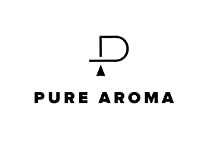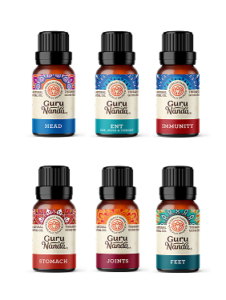What Is Aromatherapy?
Aromatherapy – it’s the practice of using plant-derived essential oils to improve psychological and physical well-being.
If you’ve ever enjoyed the smell of a scented candle…felt energized when around eucalyptus…relaxed when you smelled a favorite scent…you’ve experienced aromatherapy.
Now imagine being able to use it to change your mood, change your thinking, change your behavior. Sounds amazing, doesn’t it?
Well, aromatherapy is considered a form of alternative medicine because many people experience amazing results to their overall well-being including pain relief, mood enhancement, and stress management.
Aromachology – it’s the study of how different aromas affect human behavior. And anecdotal evidence is clear…aromas have an effect on both our minds and our bodies.
Likely when you think of aromatherapy you think essential oils. There’s more to aromatherapy than just essential oils – it encompasses absolutes, hydrosols, infusion, phytoncides, and carrier oils.
An absolute is an oil that has been extracted from plant material through superficial fluid extraction (like with the process to create rose absolute).
Hydrosols, such as rose water, are aqueous by-products of distillation. Plant material is infused in water to make aqueous solutions.
Phytoncides are the organic volatile compounds that plants produce naturally. Sweet almond oil is an example of a carrier oil, used to dilute essential oils.
There are three main ways you can enjoy aromatherapy: inhalation, absorption, and ingestion. You can inhale essential oils by taking baths or using a diffuser. They can also be absorbed through the skin via massages or compresses. Finally, you can gargle with them or add them to your food and drink for ingestion. Be careful about gargling! Not all essential oils can be or should be ingested or used orally.
Aromatherapy has a variety of therapeutic actions, including antiseptic effects, anesthetic effects, and psychological benefits. It’s efficacy on the central nervous system and metabolism stems from its impact on the brain and nerves.
Want to do some aromatherapy of your own…at home? Combine neroli, eucalyptus, lavender, rosemary, nutmeg, and peppermints in base oils with a few drops of basil for added effect. You’ll soon be feeling relaxed and focused.
Add oils like lavender and rose to your bathwater to heal a few different ailments including depression, insomnia, acne, joint pains, stress, coughs, and dry skin. You’ll feel better because of the aroma and because of the healing properties of lavender and rose.
Come common essential oils used in aromatherapy include sweet almond, avocado, cocoa butter, grape seed, jojoba, olive, peanut, rose hip, sesame and sunflower oil.
There are many, many different essential oils. All with different fragrances and chemical makeups. Which essential oils are best depends on what symptoms you want to reduce or treat…or fragrance you personally prefer. A few of the most popular essential oils include:
- Lavender oil: The most common relaxing scent. Often used while bathing, many people enjoy fresh cuttings from a bush and placed in a vase somewhere in the home. Many people find the lavender scent relaxing. It’s often used to help relieve stress and anxiety and promote good sleep.
- Tea tree oil: Also called melaleuca, this essential oil was used by Australia’s aboriginal people for wound healing. Today, it’s commonly used for acne, athlete’s foot and insect bites.
- Peppermint oil: There’s some evidence peppermint essential oil helps relieve irritable bowel syndrome (IBS) symptoms when taken in an enteric-coated capsule (from a trusted health supplement provider). It may also relieve tension headaches when applied topically.
- Lemon oil: Many people find the citrusy scent of lemon oil a mood booster. It’s also often used in homemade cleaning products.
How to find quality essential oils
The most important thing to consider when shopping for essential oils is product quality. But figuring out which oils are the best is challenging, since there’s no government agency in the U.S. that provides a grading system or certification for essential oils. A big problem? Many companies claim their essential oils are “therapeutic grade,” but that’s just a marketing term.
Unfortunately, there are lots of products you might find online or in stores that aren’t harvested correctly or may have something in them that isn’t listed on the label.
Here are some tips to help you shop for pure essential oils:
- Look at the label: It should include the Latin name of the plant, information on purity or other ingredients added to it, and the country in which the plant was grown.
- Evaluate the company: Purchase products from a well-known and reputable aromatherapy company that’s been around for several years.
- Choose dark-colored, glass containers: Pure essential oils are highly concentrated. They can dissolve plastic bottles over time, tainting the oil. Most companies package essential oils in small brown or blue glass bottles to protect the quality.
- Avoid “fragrance oils”: Fragrance or perfume oils are made from essential oils combined with chemicals or entirely from chemicals. They’re not suitable for aromatherapy — instead, look for bottles that contain a single essential oil in its purest form (100% essential oil with no other fillers).
- Compare prices: Essential oils range in price, depending on how involved harvesting and production are. Within a line there should be a wide variety of prices — rose absolute or sandalwood oils will be more expensive, while sweet orange oil will be on the less expensive end. If you find a rock-bottom price for an expensive essential oil, it probably isn’t pure.
Want to know where to get quality essential oils? Sure, you can go to Amazon and hope to figure out who is offering the best quality at the best price. If you don’t have time for that, check out these excellent sources for essential oils:

PURE AROMA 100% pure natural oils, no additives, no fillers, no bases or carriers.
GuruNandi Offering 138 essential oils, distilled from the produce of some of the very best herb and flower suppliers on the planet. This includes cinnamon from Sri Lanka, tea tree from Australia, lavender from Bulgaria, Lemon from Italy, etc.



